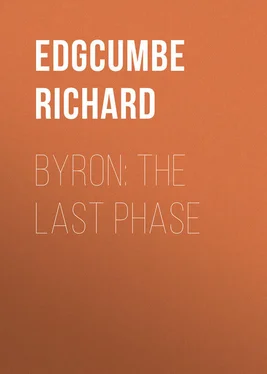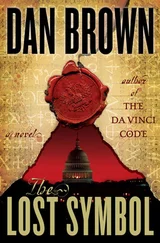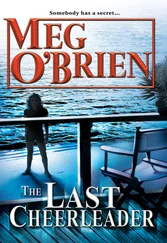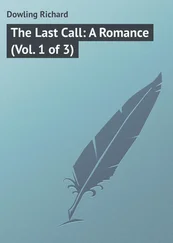Richard Edgcumbe - Byron - The Last Phase
Здесь есть возможность читать онлайн «Richard Edgcumbe - Byron - The Last Phase» — ознакомительный отрывок электронной книги совершенно бесплатно, а после прочтения отрывка купить полную версию. В некоторых случаях можно слушать аудио, скачать через торрент в формате fb2 и присутствует краткое содержание. Жанр: literature_19, Поэзия, foreign_antique, foreign_prose, foreign_poetry, Биографии и Мемуары, на английском языке. Описание произведения, (предисловие) а так же отзывы посетителей доступны на портале библиотеки ЛибКат.
- Название:Byron: The Last Phase
- Автор:
- Жанр:
- Год:неизвестен
- ISBN:нет данных
- Рейтинг книги:3 / 5. Голосов: 1
-
Избранное:Добавить в избранное
- Отзывы:
-
Ваша оценка:
- 60
- 1
- 2
- 3
- 4
- 5
Byron: The Last Phase: краткое содержание, описание и аннотация
Предлагаем к чтению аннотацию, описание, краткое содержание или предисловие (зависит от того, что написал сам автор книги «Byron: The Last Phase»). Если вы не нашли необходимую информацию о книге — напишите в комментариях, мы постараемся отыскать её.
Byron: The Last Phase — читать онлайн ознакомительный отрывок
Ниже представлен текст книги, разбитый по страницам. Система сохранения места последней прочитанной страницы, позволяет с удобством читать онлайн бесплатно книгу «Byron: The Last Phase», без необходимости каждый раз заново искать на чём Вы остановились. Поставьте закладку, и сможете в любой момент перейти на страницу, на которой закончили чтение.
Интервал:
Закладка:
On the first visit which Trelawny paid to Byron at the Palazzo Lanfranchi after Hunt’s arrival, he found Mrs. Hunt was confined to her room, as she generally was, from bad health. Trelawny says:
‘Hunt, too, was in delicate health – a hypochondriac; and the seven children, untamed, the eldest a little more than ten, and the youngest a yearling, were scattered about playing on the large marble staircase and in the hall. Hunt’s theory and practice were that children should be unrestrained until they were of an age to be reasoned with. If they kept out of his way he was satisfied. On my entering the poet’s study, I said to him, “The Hunts have effected a lodgment in your palace;” and I was thinking how different must have been his emotion on the arrival of the Hunts from that triumphant morning after the publication of “Childe Harold” when he “awoke and found himself famous.”’
Truth told, the Hunts’ lodgment in his palace must have been a terrible infliction to the sensitive Byron. His letters to friends in England at this time are full of allusions to the prevailing discomfort. Trelawny tells us that
‘Byron could not realize, till the actual experiment was tried, the nuisance of having a man with a sick wife and seven disorderly children interrupting his solitude and his ordinary customs – especially as Hunt did not conceal that his estimate of Byron’s poetry was not exalted. At that time Hunt thought highly of his own poetry and underestimated all other. Leigh Hunt thought that Shelley would have made a great poet if he had written on intelligible subjects. Shelley soared too high for him, and Byron flew too near the ground. There was not a single subject on which Byron and Hunt could agree.’
After Shelley and his friend Williams had established the Hunts in Lord Byron’s palace at Pisa, they returned to Leghorn, Shelley ‘in a mournful mood, depressed by a recent interview with Byron,’ says Trelawny.
It was evident to all who knew Byron that he bitterly repented having pledged himself to embark on the literary venture which, unfortunately, he himself had initiated. At their last interview Shelley found Byron irritable whilst talking with him on the fulfilment of his promises with regard to Leigh Hunt. Byron, like a lion caught in a trap, could only grind his teeth and bear it. Unfortunately, it was not in Byron’s nature to bear things becomingly; he could not restrain the exhibition of his inner mind. On these occasions he was not at his best, and forgot the courtesy due even to the most unwelcome guest. Williams appears to have been much impressed by Byron’s reception of Mrs. Hunt, and, writing to his wife from Leghorn, says:
‘Lord Byron’s reception of Mrs. Hunt was most shameful. She came into his house sick and exhausted, and he scarcely deigned to notice her; was silent, and scarcely bowed. This conduct cut Hunt to the soul. But the way in which he received our friend Roberts, at Dunn’s door, 6 6 Henry Dunn kept a British shop at Leghorn.
shall be described when we meet: it must be acted.’
Shelley and Edward Williams, two days after that letter had been written – on Monday, July 8, 1822, at three o’clock in the afternoon – set sail on the Ariel for their home on the Gulf of Spezzia. The story is well known, thanks to the graphic pen of Edward Trelawny, and we need only allude to the deaths of Shelley and Williams, and the sailor lad Charles Vivian, in so far as it comes into our picture of Byron at this period.
Byron attended the cremation of the bodies of Shelley and Williams, and showed his deep sympathy with Mary Shelley and Jane Williams in various ways.
Writing to John Murray from Pisa on August 3, 1822, he says:
‘I presume you have heard that Mr. Shelley and Captain Williams were lost on the 7th ultimo in their passage from Leghorn to Spezzia, in their own open boat. You may imagine the state of their families: I never saw such a scene, nor wish to see another. You were all brutally mistaken about Shelley, who was, without exception, the best and least selfish man I ever knew. I never knew one who was not a beast in comparison.’ 7 7 For Byron’s opinion of Shelley’s poetry, see appendix to ‘The Two Foscari’: ‘I highly admire the poetry of “Queen Mab” and Shelley’s other publications.’
Writing August 8, 1822, to Thomas Moore, Byron says in allusion to Shelley’s death:
‘There is thus another man gone, about whom the world was ill-naturedly, and ignorantly, and brutally mistaken. It will, perhaps, do him justice now , when he can be no better for it.’
In another letter, written December 25, 1822, Byron says:
‘You are all mistaken about Shelley. You do not know how mild, how tolerant, how good he was in society; and as perfect a gentleman as ever crossed a drawing-room, when he liked, and where he liked.’
Byron’s opinion of Leigh Hunt, and his own connection with that ill-fated venture known as The Liberal , is concisely given by Byron himself in a letter to Murray. The Liberal , published October 15, 1822, was fiercely attacked in the Literary Gazette and other periodicals. The Courier for October 26, 1822, calls it a ‘scoundrel-like publication.’ Byron writes:
‘I am afraid the journal is a bad business, and won’t do; but in it I am sacrificing myself for others – I can have no advantage in it. I believe the brothers Hunt to be honest men; I am sure they are poor ones. They have not a rap: they pressed me to engage in this work, and in an evil hour I consented; still, I shall not repent, if I can do them the least service. I have done all I can for Leigh Hunt since he came here; but it is almost useless. His wife is ill, his six children not very tractable, and in the affairs of the world he himself is a child. The death of Shelley left them totally aground; and I could not see them in such a state without using the common feelings of humanity, and what means were in my power to set them afloat again.’
In another letter to Murray (December 25, 1822) Byron says:
‘Had their [the Hunts’] journal gone on well, and I could have aided to make it better for them, I should then have left them, after my safe pilotage off a lee-shore, to make a prosperous voyage by themselves. As it is, I can’t, and would not if I could, leave them amidst the breakers. As to any community of feeling, thought, or opinion between Leigh Hunt and me, there is little or none. We meet rarely, hardly ever; but I think him a good-principled and able man, and must do as I would be done by. I do not know what world he has lived in, but I have lived in three or four; and none of them like his Keats and Kangaroo terra incognita . Alas! poor Shelley! how he would have laughed had he lived, and how we used to laugh now and then, at various things, which are grave in the Suburbs!’
It is perhaps not generally known that Shelley bequeathed a legacy of £2,000 to Byron. Byron’s renunciation of this token of friendship is ignored by Professor Dowden in his life of Shelley. Writing to Leigh Hunt on June 28, 1823, Byron says:
‘There was something about a legacy of two thousand pounds which he [Shelley] has left me. This, of course, I declined, and the more so that I hear that his will is admitted valid; and I state this distinctly that, in case of anything happening to me, my heirs may be instructed not to claim it.’
Towards the end of September, 1822, Byron and the Countess Guiccioli left the Palazzo Lanfranchi, and moved from Pisa to Albaro, a suburb of Genoa. At the Villa Saluzzo, where the poet resided until his departure for Greece, dwelt also Count Gamba and his son Pietro, who occupied one part of that large house, while Byron occupied another part, and their establishments were quite separate. The first number of The Liberal which had been printed in London, reached Byron’s hands at this time. The birth of that unlucky publication was soon followed by its death, as anyone knowing the circumstances attending its conception might have foreseen. Shelley’s death may be said to have destroyed the enterprise and energy of the survivors of that small coterie, who, in the absence of that vital force, the fine spirit that had animated and held them together, ‘degenerated apace,’ as Trelawny tells us. Byron ‘exhausted himself in planning, projecting, beginning, wishing, intending, postponing, regretting, and doing nothing. The unready are fertile in excuses, and his were inexhaustible.’
Читать дальшеИнтервал:
Закладка:
Похожие книги на «Byron: The Last Phase»
Представляем Вашему вниманию похожие книги на «Byron: The Last Phase» списком для выбора. Мы отобрали схожую по названию и смыслу литературу в надежде предоставить читателям больше вариантов отыскать новые, интересные, ещё непрочитанные произведения.
Обсуждение, отзывы о книге «Byron: The Last Phase» и просто собственные мнения читателей. Оставьте ваши комментарии, напишите, что Вы думаете о произведении, его смысле или главных героях. Укажите что конкретно понравилось, а что нет, и почему Вы так считаете.












